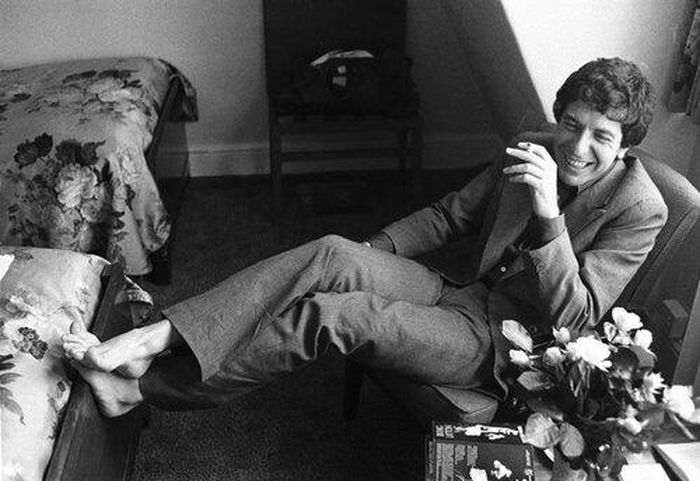Reopening my Eyes to Musical Theatre
Rachael Kennedy reflects on re-engaging with musical theatre and the joy it brings
I graduated in July from the music course at Cambridge. Since then, there’s been an abundance of time for musical exploration, a fact for which I’m enormously grateful. I’m grateful because I like learning, but also because I’m aware that I will soon be responsible for the musical education of dozens of teenagers, and I want to give them the richest, most eye-opening and fulfilling experience possible in a classroom setting.
My exploration arrived at musical theatre via a tangential route: the screenwriter of a favourite lockdown television show of mine makes frequent references to the genre in his writing, re-sparking my interest in it (latent since my childhood infatuation with High School Musical). On the encouragement of one of my friends, I listened to and watched Hamilton, and on the encouragement of Netflix advertising, I watched The Prom, both of which had a profound and multi-faceted impact on me.
Hamilton
What struck me first about Hamilton was its sophisticated use of metrical devices in relation to both words and music. Emerging from watching the movie, on the other hand, what stood out was the show’s message of the sacred and fragile nature of (in its case, American) democracy. At a time when the sitting US president was legally disputing the result of what has been deemed the most secure election in the country’s history, a musical with such strong emotive power – on both personal and collective levels – in relation to the democratic process stopped me in my mince pie-driven tracks.
Andrew Rannells
Something else with a significant personal impact during my exploration has been reading the memoirs of actor and singer Andrew Rannells (Too Much Is Not Enough: A Memoir of Fumbling Toward Adulthood). The memoirs are honest and non-judgmental, and because of that able to comfort me about upcoming events, such as moving to a large city and more generally about navigating life in one’s twenties.
I read Andrew Rannells’ hilarious memoir in a couple of hours. Snarfed my coffee at “Do you like this? Because you can’t have it. But it’s nice, right?” on page 99. It’s damn funny and touching. #toomuchisnotenough
- Lin-Manuel Miranda (@Lin_Manuel) March 29, 2019
I first came across Rannells in the Netflix adaptation of the Broadway musical The Prom, most significantly for me in its “Love Thy Neighbor” sequence. This sequence captured my imagination because of its stunning synchronised dance, the change some of its characters undergo in the course of one song and because of its message of inclusivity, simply exposed. This message runs throughout the film and is one that I’ve rarely seen so clearly foregrounded on screen. The film’s dance sequences were captivating to me personally, because group dance is such a fundamentally human pursuit and one that none of us have been able to partake in for a while.
Theatre, musical and otherwise
Exploring musical theatre during lockdown periods has been valuable to me on a personal level, too, because it has been a pleasurable way to keep in touch with the wider world, meeting a range of people (characters) and coming into contact with a variety of places. While remaining in the West English countryside, I’ve spent countless hours over the ocean in New York and met characters of a range of ages and walks of life.
Exploring musical theatre has encouraged me back into an exploration of theatre more broadly defined, something with which I’d had a brief, but passionate relationship during secondary school English teaching. I’ve engaged with plays by Mart Crowley, Larry Kramer, Kemp Powers and Timothy McNeil, and I’m immeasurably better for it. Something which helped facilitate this transition has been following up the musical theatre actors with whom I’d come into contact in their work in television and film, including adaptations of stage plays. These include Netflix’s The Boys in the Band, an adaptation of Mart Crowley’s 1968 play, Amazon Studios’ One Night in Miami, an adaptation of Kemp Powers’ play, and The New Normal, a 2012-13 NBC series starring Andrew Rannells.
It has been a joy and a privilege to re-engage with musical theatre and I will carry it forward with me both personally and professionally as I move ahead in my life and into music teaching.
 News / Uni Scout and Guide Club affirms trans inclusion 12 December 2025
News / Uni Scout and Guide Club affirms trans inclusion 12 December 2025 News / Pembroke to convert listed office building into accom9 December 2025
News / Pembroke to convert listed office building into accom9 December 2025 News / Cambridge Vet School gets lifeline year to stay accredited28 November 2025
News / Cambridge Vet School gets lifeline year to stay accredited28 November 2025 Features / Searching for community in queer Cambridge10 December 2025
Features / Searching for community in queer Cambridge10 December 2025 News / Uni redundancy consultation ‘falls short of legal duties’, unions say6 December 2025
News / Uni redundancy consultation ‘falls short of legal duties’, unions say6 December 2025










